Finding The Best Car For Disabled Passenger Access
When it comes to finding the best car for disabled passenger access, there are several features and adaptations to consider to ensure a vehicle will meet your needs.
In our guide, we cover all the tips and considerations to help you find the best cars suitable for disabled passengers.
Accessibility features
The first thing to look at when searching for the best car for disabled passenger access is the vehicle’s standard accessibility features. A high roof, low vehicle floor, wide-opening doors and spacious footwells are things to look for in a car that will provide easier entry and exit, particularly if you are searching for easy access to car seat for a disabled passenger.
The more space within the aperture panel and foot well will reduce the amount of manoeuvrability required. It’s still an incredibly important consideration if you do require additional seating aids as the more space there is, the more likely the adaptation will be compatible with the vehicle.
If you are exploring the switch to electric, you can read our blog which details what solutions are available including the best SUVs for disabled passenger access.
User-friendly technology
Advancements in technology have in turn improved the overall user-friendly design of standard vehicles, such as adjustable seating controls, in-car voice assistance, automatic sliding doors and automatic boot opening/closing functions. These features enhance the overall accessibility and convenience for disabled passengers when getting seated, during their journey and also accessing the boot when parked up.
Adaptability options
Although there have been some great advancements in technology that can assist with basic accessibility, the role vehicle adaptations play are still hugely vital to achieve full access for disabled passengers.
Person Hoists
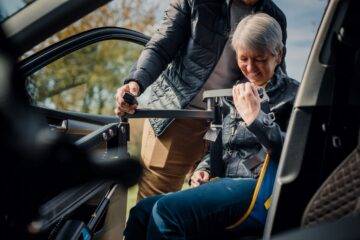
Person hoists offer safe and easy access into conventional vehicles via a fitted sling. This transfer method removes the requirement for a caregiver to physically lift the user as part of their transfer in or out of the vehicle.
Swivel Seat
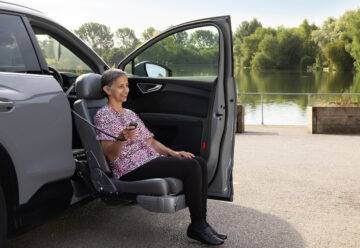
Swivel seats enable easy access by turning up to 90 degrees outside the vehicle, lowering, and even transferring from the vehicle entirely onto a frame. Suitable for most levels of mobility, a swivel seat increases the safety and comfortability of getting seated into and out of a vehicle.
Transfer Plates
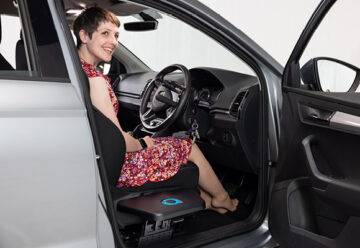
Transfer plates provide a stable temporary platform on the outer edge of the car seat to bridge the gap, enabling the user to pause and pivot. They are particularly beneficial for those who have difficulty lifting their legs or moving from a sitting to a standing position. Different versions are available to suit individual requirements including manual transfer plates and electronic transfer plates.
Seat Extenders
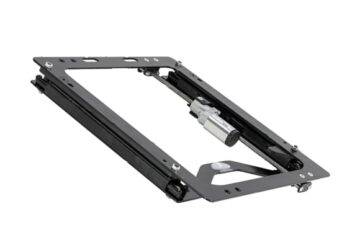
If your vehicle doesn’t have much space to accommodate a safe transfer, seat extenders can be installed to increase the range of movement that your seat can slide back and forth. This is particularly useful for those who have difficulties with bending their legs when getting in and out of their vehicle.
Boot Hoist
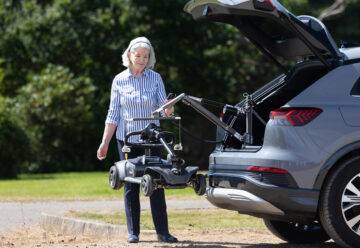
Another key consideration when travelling with a passenger who uses a mobility device such as a wheelchair or mobility scooter, is how to lift and stow it within the vehicle. A car boot hoist is the most popular solution as it allows for easy loading, unloading, storage and transport of your mobility device within your car.
Budget considerations
Of course, budget is an important consideration when searching for the best car for wheelchair passengers. There is a range of financial assistance available to help towards the cost of a new car and any adaptations.
The most notable being the Motability Scheme, a government-funded charity which allows you to exchange your qualifying mobility allowance for a new car and vehicle adaptations. Alternatively, if you are registered as disabled, you are eligible for VAT exemption when purchasing your new car. Top tip, many people then use the money saved to buy their car adaptations! Read our blog to discover exactly how Motability funding works and for further information about the Scheme.
Exploring all your available options enables you to choose the most cost-effective and accessible solution for your needs.
Whilst conventional vehicles aren’t designed with full accessibility in mind, access can be achieved through the use of advanced technology and vehicle adaptations. If you’d like to know more about our range of vehicle accessibility aids, funding options and how they can help you, contact our team of friendly mobility experts online or call us on 0800 288 4422.